When making clean perfumes, you'll need to follow three essential rules: First, select high-quality, skin-safe essential oils and always perform patch tests before use. Second, incorporate natural preservatives like Vitamin E oil and rosemary extract to prevent oxidation and maintain freshness. Third, follow proper dilution ratios (40 drops essential oil to 140 drops alcohol for Eau de Parfum) and store in dark glass bottles. These fundamentals will set you up for creating pure, long-lasting fragrances.
Safety First: Essential Oil Selection and Testing
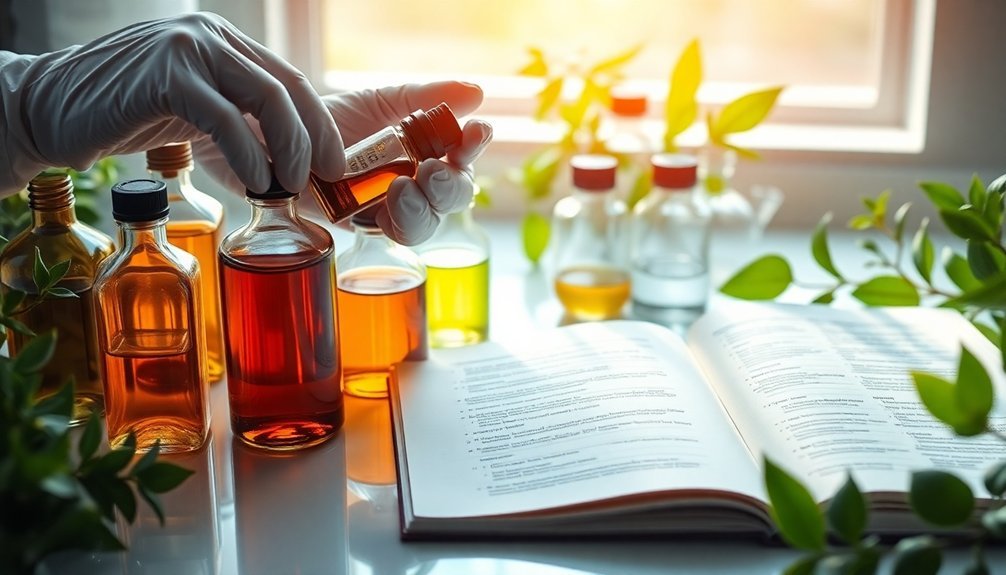
While creating clean perfumes can be exciting, choosing the right essential oils requires careful consideration of safety protocols.
Start by selecting skin safe oils with low irritation potential, such as lavender, bergamot, and lemon. You'll want to use organic or therapeutic grade oils to minimize contaminants in your formulation.
Before incorporating any essential oil into your blend, it's essential to perform a patch test. Mix the oil with a carrier oil and apply it to a small area of skin to check for adverse reactions.
Be mindful of potential allergens, especially if you have sensitive skin, and always review safety data sheets for specific oils.
Remember that certain oils, particularly citrus varieties, can cause photosensitivity, so avoid applying these perfumes before sun exposure.
Natural Preservation Methods for Clean Fragrances
Because natural ingredients can degrade quickly without proper preservation, understanding how to protect your clean fragrances is essential for maintaining their quality and extending their shelf life. You'll need to incorporate natural preservatives like Vitamin E oil and rosemary extract to prevent oxidation while using high-proof alcohol for its antibacterial properties.
| Preservation Method | Benefit |
|---|---|
| Natural preservatives | Prevents oxidation and rancidity |
| High-proof alcohol | Inhibits microbial growth |
| Antimicrobial essential oils | Adds protection and scent |
| Dark glass bottles | Blocks harmful light exposure |
| Cool environment | Prevents ingredient breakdown |
Select essential oils with antimicrobial properties, such as tea tree or lavender, to enhance your fragrance's longevity. Always store your clean fragrances in dark glass bottles and keep them in a cool, dark place to maximize their shelf life.
Proper Dilution and Storage Guidelines
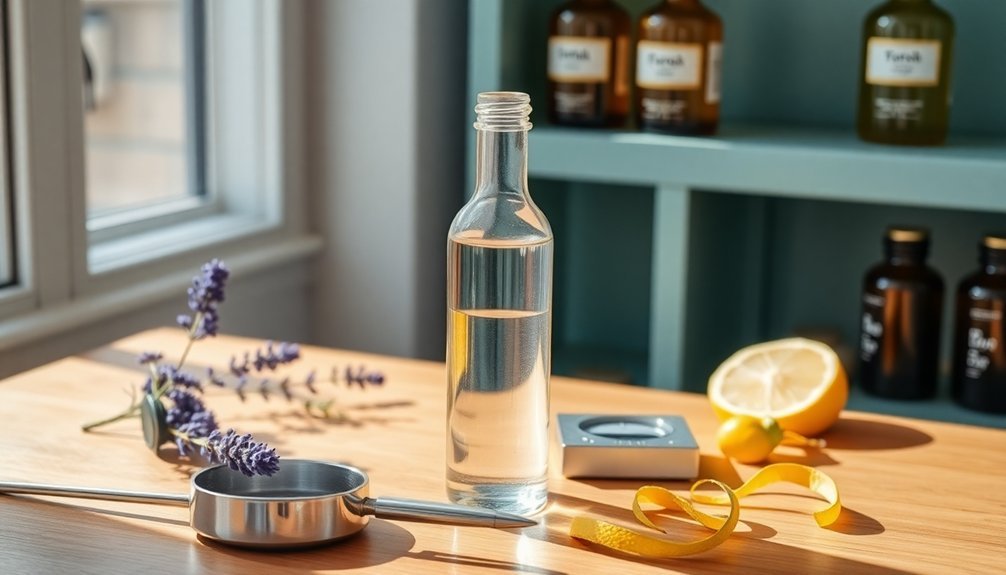
Achieving the perfect balance in your clean perfume requires precise dilution ratios and careful storage practices.
For proper dilution in perfume making, mix 40 drops of essential oils with 140 drops of alcohol to achieve a 20% concentration ideal for Eau de Parfum. You'll want to store your creation in a dark glass bottle to protect its scent integrity.
- Always maintain a temperature environment between 15-20°C (59-68°F)
- Check regularly for cloudiness, which signals ingredient incompatibility
- Allow a minimum one-week resting time for oils and alcohol to blend
- Keep your perfume away from direct sunlight in a cool, dark place
Following these storage guidelines guarantees your fragrance maintains its intended characteristics and prolongs its shelf life.
Pay close attention to proper alcohol concentration and avoid excessive water addition to maintain clarity.
Frequently Asked Questions
What Is the 20/50/30 Rule for Perfume?
You'll find the 20/50/30 rule represents your perfume's ideal composition: 20% essential oils, 50% alcohol, and 30% distilled water. This ratio creates a balanced fragrance that's both strong and wearable.
What Makes a Clean Perfume?
You'll create a clean perfume by combining bright citrus notes (like bergamot and lemon), fresh florals, and airy musks. These elements work together to give you that crisp, invigorating scent that's reminiscent of freshly laundered clothes.
What Are the Rules for Perfume?
You'll need to follow the three-note structure, maintain proper ratios (20% oils, 70% alcohol), use minimal aroma chemicals, allow aging time, and keep detailed records of your blending process for consistent results.
What Do I Need to Know Before Starting a Perfume Business?
You'll need to understand fragrance regulations, secure quality ingredients, develop a unique brand identity, create a solid business plan, and establish effective marketing strategies. Don't forget to research your target market thoroughly.
In Summary
You'll find making clean perfumes rewarding once you've mastered these three fundamental rules. Remember to always test essential oils for skin reactions, use natural preservatives like vitamin E to extend shelf life, and stick to proper dilution ratios. Don't forget to store your creations in dark glass bottles away from heat and light. With these guidelines, you're ready to create safe, natural fragrances.
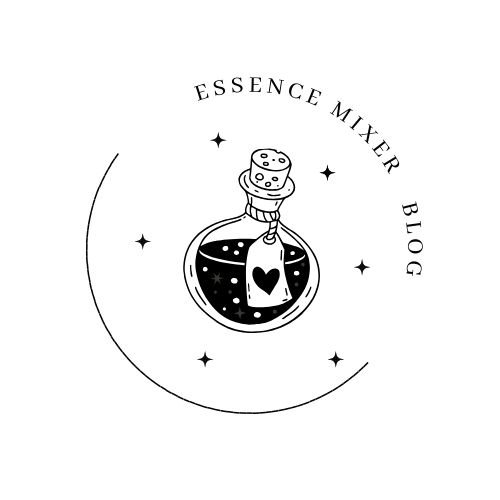
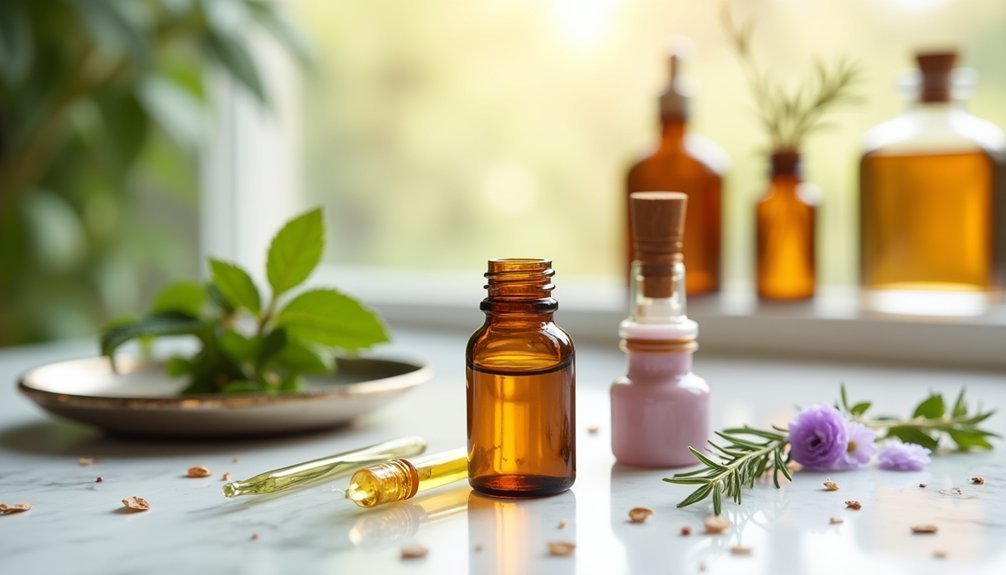
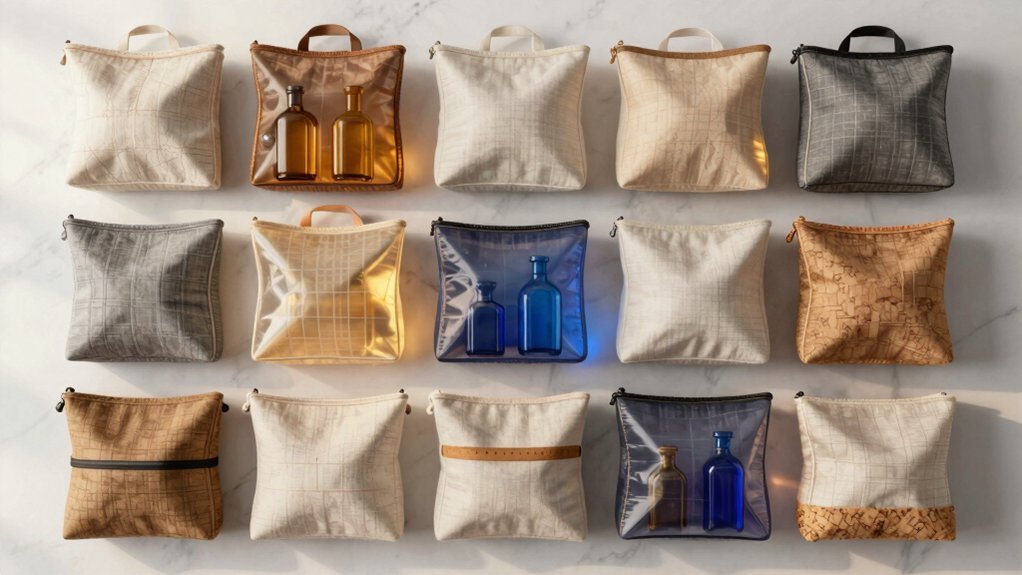
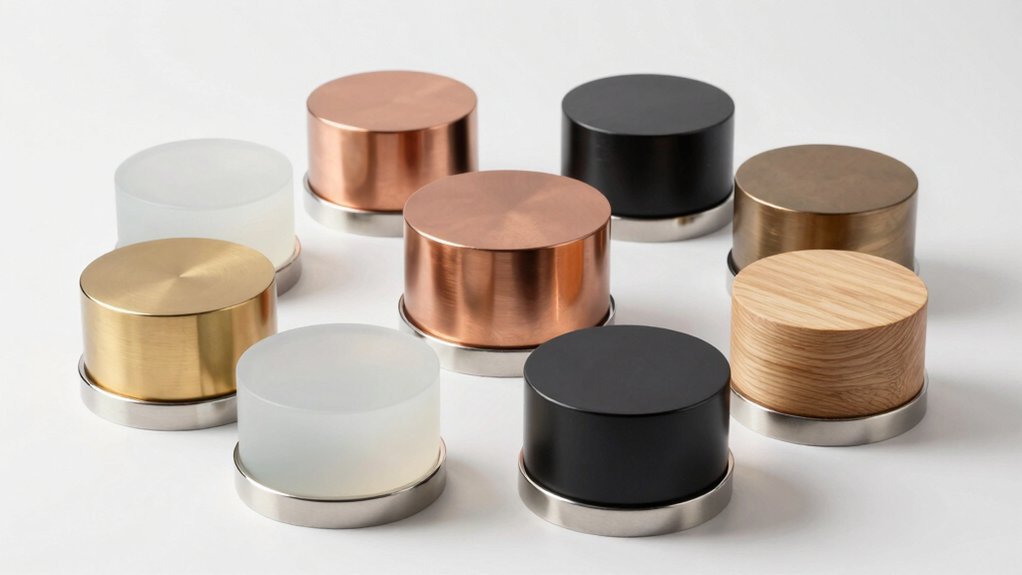
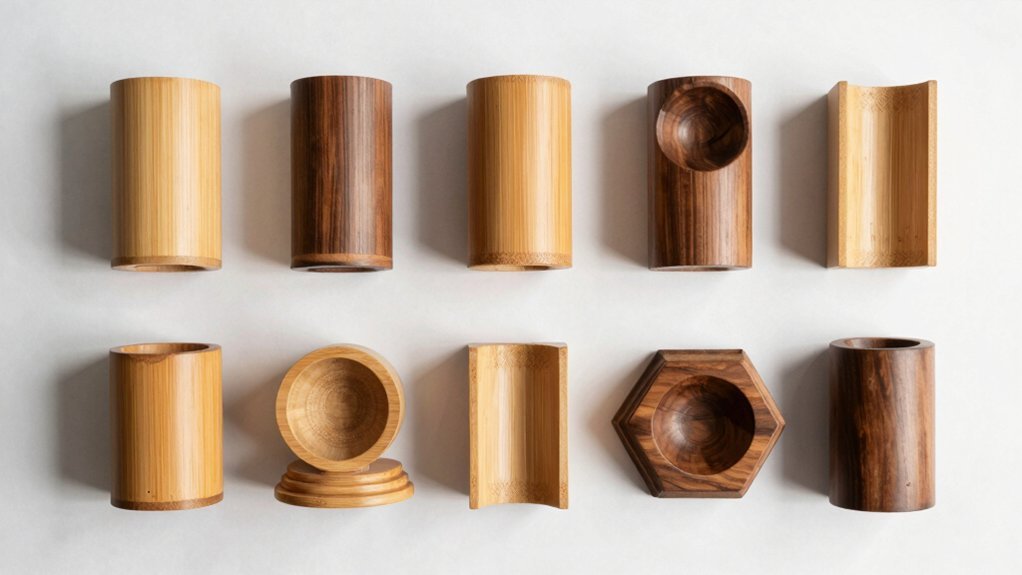
Leave a Reply